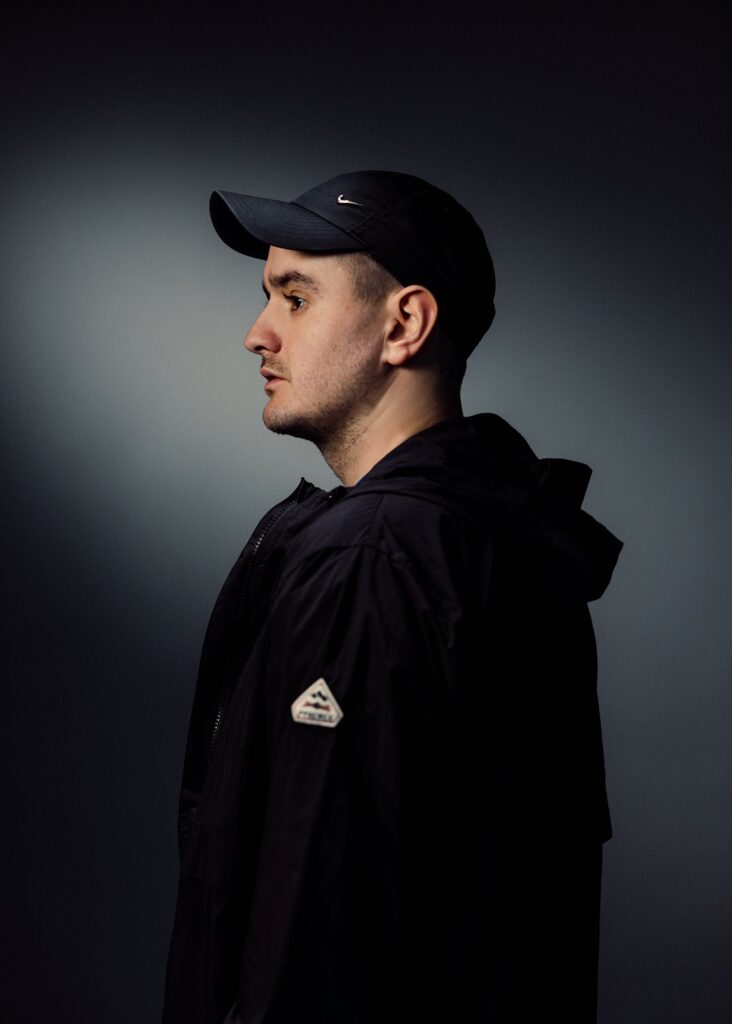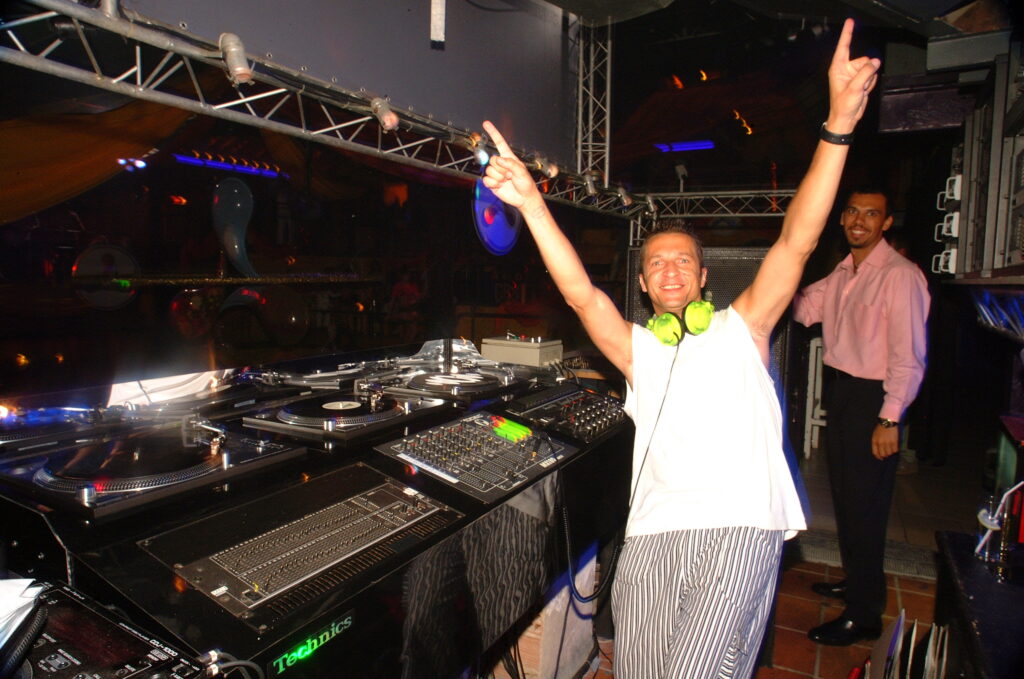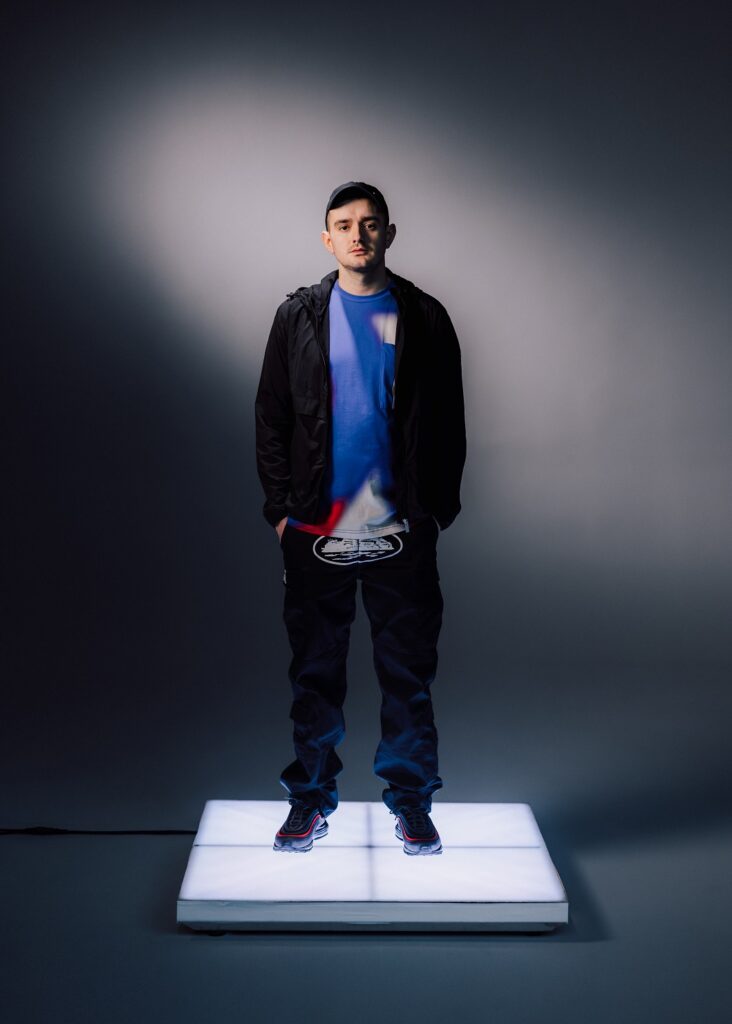
Two legends of two eras of Trance talking about one of the most iconic places on Earth for Dance music. What’s not to like?
It’s far too much to handle, I know. But as we’re waving Summer goodbye, we here at EDMTunes are doing so in style: we got two of the largest names in Trance to have a little chat about THE place to be during the hotter months: Ibiza. Who are these names, you may ask? Well, we’ve got one of the absolute icons of the genre, Mauro Picotto, and the already risen star of the modern Trance movement, Ben Hemsley.
Author of some of the defining tracks of all time for Trance, Mauro Picotto is widely considered a living legend. With hits like ‘Komodo‘, ‘Pulsar‘, and ‘Lizard‘, and a career that spans close to 35 years (!), words really don’t do justice. He’s been there for basically every era of Trance, from Proto-trance, all the way to today’s scene, where he’s respected and admired worldwide — rightfully so.
And if Mauro wasn’t an impressive pull alone, we managed to get Ben Hemsley alongside him. His contributions to the genre can’t be overlooked, as he’s been one of the key players in the revival of Trance. He knows how to make music that feels full of identity and soul, just like the Trance we all love from 20 years ago. From solo productions to collaborations with people like Ferry Corsten and Armin van Buuren, plus a residency at the iconic Ibiza nightclub Amnesia, Ben’s lost the brake pedal: there’s no way of stopping him now.
And now, these two legends collide for a friendly chat, in which we exchanged views and experiences regarding the White Isle, Amnesia itself, how music has changed over the years, and so much more. So please lie back, and enjoy what Ben Hemsley and Mauro Picotto have to say about what they’re best at: Trance.
The Interview
What does Amnesia mean to you and your story as an artist?
Ben: Amnesia is my favourite club in the world – it feels like home. Since I was young, I’d always dreamed of having a residency there, so to make that come true this summer has been a bit surreal. So much history has happened there – it had Cream, Manumission was there at one point; then I think back to all the times I saw Sven Vath for Cocoon. So many nights there will go down in the history books, I’ve had some of the best nights of my life on the dancefloor, and playing there as a DJ. I just love the place!
Mauro: To me, Amnesia feels the last ‘proper’ club on the island where you can experience underground clubbing; it’s a special place – it was where I met my wife! She was part of the MTV Festival promo team back in 1999, and then we married in 2011, so it will always have a big piece of my heart. As an artist, it’s always been an important place that gives you the space to tell a story in your sets – it understands the role a DJ plays in taking clubbers on a journey, not just a name on a flyer to entice people through the door.
When I first started coming to Ibiza, playing at Amnesia was a status – it was one of the legendary superclubs alongside Space, so to be invited to play was a real honour. But if you played there, it was because you were respected as a DJ, it wasn’t to fulfil a need to be popular – that’s something I think Amnesia still values today.
In your eyes, what sets Amnesia apart from other clubs in the White Isle?
Ben: It’s the perfect size for a club and it’s unique. Amnesia has a long history that feels genuine and it’s never tried to be something that it’s not. It’s a proper institution that hasn’t followed the VIP money-orientated, high-end vibe – it’s stayed true to its core. The building has so much history, I mean even the walls still look the same as they did all those years ago, it’s unbelievable.
Amnesia is ‘real’ – it’s authentic; you go there to go ‘clubbing’ and it genuinely feels like music is the priority. Lights, video, screens – these things all have a role to play, but at Amnesia it feels like the music and the atmosphere are the most important things.
Even last weekend at Godskitchen, I had the same feeling arriving at the venue that I did when I played 20 years ago. It was hot, sweaty and felt like the early days of clubbing. Nobody had their phones in the air – I wanted to take a photo to capture a memory from the night and even felt uncomfortable taking my phone out!
Ben, even though you’re quite big in Trance at the moment, you used to be more of a House guy. I’m curious to know, what made you make the leap to Trance? What was it that led you to up the BPMs and make more emotionally charged songs?
Ben: If you look purely at my discography then it might be a bit misleading, but I didn’t exactly leap to trance – trance was the reason I started doing any of this in the first place. I’ve loved it since I was young: I played it, I mixed it on vinyl, I produced it. I even bought all the old equipment – the JP-8080, the Virus – and listened to all the classics. I’d always dig deeper than what was commercially available, so it’sI inherently important in everything I do. Even my first house single “Caress Me” – I got the idea for that from one of the first Clubland CDs which had a remix featuring a sample of Pacha’s “One Kiss”.
Trance for me was always hard house, hard dance, and trance… all in one. So I’ve never jumped in, it’s always been a part of me. Even “Through 2 You” – I was digging to find out where Signum got the sample for “What Ya Got 4 Me” from, and looked at full acapella and thought that could be house record. A lot of electronic music now lacks quality and effort, so I always take my time on something; it might not stream as well or go viral on TikTok, but I like to think that these songs will be able to be listened to for a long time compared to other records.
Mauro, how has Ibiza changed since you first started playing gigs over there? Has it had a makeover for the better, for the worse, or is it not nearly as binary a conclusion as that?
Mauro: That’s a tough one to answer, there are of course a lot of changes which I am not a fan of, but everything in life changes over time. Equally, there are many things about the island which still keep me coming back for over 20 years! In the clubs, the biggest thing that I see is the shorter set times. One-hour sets are ridiculous – you need the space to tell a story. I know that clubbers are open to new experiences, but there has to be space in-between the classics to build a journey where you can share those new ideas, and you can’t do that in just one hour. Many clubs fill the line-ups with lots of names, DJs who want to play it safe and end up playing the same tracks – I think that club culture suffers for that. But places like Amnesia still gives you the time to be able to tell a story and share both classic sounds and new ideas and experiments, so the idea of ‘better or worse’ doesn’t really have a straight answer.
You’re one of the referents of the Classic Trance sound, worldwide, and I bet you’ve noticed your songs tend to be used, referenced and flipped a ton these days. Why are we so obsessed with Classic Trance? What is it that it has that is so hard to find in modern music?
Mauro: There’s something in the ‘classic’ trance sound which touched a lot of people’s hearts, songs that carry emotional karma. I think that the aim for new producers is to try and capture that feeling with a new piece of music – and it’s very difficult, especially when these tracks have had decades to become part of people’s lives. Maybe it’s easier to use an old hook that has a lot of meaning, and build a new track around it to have that same impact but feel like it is your own track.
It’s certainly a big ego boost when you hear a track of yours being played now, but then you realise that it has been reimagined as a different track, however it is still those original elements that create the emotional response which people react to. It’s difficult to make a new track become successful, so remixes and edits are an easy option when you don’t have the time or experience to invest into something exclusive or unique. I also think that the BPM is so high these days that it really restricts the amount of space that you have to build something new that has the ability to connect in that powerful way, you need more time to do that.
A bit of a lighter question now for both. Let’s say a friend of yours is visiting Ibiza for the first time, they’ve got no clue about anything. What would be the three essential plans you’d advise them to do to live the island to its fullest? Everything counts: venues, restaurants, nature, etcetera.
Ben: It’d completely depend on the amount of time they’re staying – if you’re there for a week-long stay, I’d definitely say that you shouldn’t go and feel like you need to overdo it every night in the clubs. The island has so much more to offer. Even the clubbing doesn’t have to be all-nighters – you can go to Pikes and stay ‘til 2am for a dance. In fact, definitely go to Pikes, it’s one of my favourites – great food and the hotel is really nice, It’s got so much history.
Ibiza is beautiful, there are loads of places that are just pure nature. Make sure you go and see Es Vedra, and beaches like Benirrás. Try all the beaches, as many as you can – they’re all different. To eat, I really like the Golden Buddha, it’s one of the best sunset spots on the island and quite cheap, and not as crowded as Mambo and the sunset strip.
Mauro: I’ve been coming to Ibiza for so long now that a lot of people ask me this question! It’s hard because things change so much – a lot of my favourite restaurants have closed, but the one thing I always suggest is a boat day. You get the peace of the boat and the beauty of the island, there really is no better way to experience the island. There are so many coves and hidden beaches to explore, and if you are near the airport, even watching the planes land from the sea is an amazing experience.
For food, Ibiza has so many different options but Ibiza Town has a bit of everything. Spending time there between restaurants and the bars is a great way to enjoy a night away from the clubs. I always tell people that the island has many different sides, it’s much more than just clubbing.
Now Ben, you’re often considered one of the leaders of the “new era of Trance”, a movement that’s characterised by younger, newer faces spinning Trance all over again, and pulling new listeners in. Would you agree with that statement, and does it ever feel like a bit too much of a weight on your shoulders if you think about it too much?
Ben: It’s an honour to be called that and it makes us happy and glad that people appreciate what I’m trying to do, because trance has always been my passion. I find that a lot of people in my era are doing it the wrong way though, I don’t think that’s me being snobby – people try to jump on something and cheapen it by not following the methods that made trance so timeless. They take the cheap, quick alternative way around it; using cheaper synths and forgetting the fundamental things that made trance feel like a journey – like when it comes to automation from LFO controlling the cut-off on the filter, to modulating throughout and creating a wavy up-and-down texture throughout the track. Details and little things that people are forgetting. Just putting in a sawtooth, an off-beat, or hard kick drum and calling it trance, saying “we’re part of bringing trance back too”. That said, there are so many other talented people who are bringing in certain elements and producing it properly, taking the time to do it – for example, Spray, I think he’s absolutely amazing and doing it properly. He has the Balearic sound nailed to a tee, but he’s made it sonically compatible with modern records when it comes to mixing in a club and making sure it doesn’t sound like it’s sonically inferior to other records that it’s played alongside.
I’d like to think I played a part in upping the energy in some ways, but being part of this ‘revival’ isn’t something I feel the weight of responsibility for, there’s no pressure, because I’ve not done it deliberately. I was just doing something different, when I first started playing this stuff on the main circuits, nobody else really was. I heard from other big artists, people like Calvin Harris, that it inspired him to step into a faster zone. He’s made a more commercial side to it, but if it intrigues listeners to go back into what that sound was and what it meant to them, dig deeper and find people like me, that can only be a good thing. It just feels like an honour to inspire someone like him who’s a genius, or have Armin respect what I’m doing, and Ferry Corsten who I’ve worked with. All these other trance producers who I looked up to, people like Chicane, who have made what I consider to be the best dance music ever written, for them to respect what I’m doing is the most lovely thing in the world for me. Heroes accepting and liking what you’re doing and respecting you back after you’ve looked up to them for so many years.
As a producer, I won’t only make trance; in the era of trance I looked up to, they played a bit of everything – if you go and listen to some of Seb Fontaine’s sets or sets recorded from Cream and Manumission, they were playing hard house, or what we’d now call hard groove – weird tracks that might be up-tempo but then go back down into house, or sped-up house, and blend it all together. That’s what trance is to me, a big journey for everything.
Mauro, what’s one thing that motivates you to keep on producing new music after such an impressive and extensive career?
Mauro: There is no other reason except the full passion I have for the music. I have a priority in my family, and you might have to prioritise other things during the week to maintain a career, but when you have a little free time, you dedicate it to what you like doing the most. What I like the most is music! A lot of things change within the industry, but somehow, I always feel like I want to try something different, or I need to express myself in a different way with music – that passion hasn’t changed – and that’s what is driving me to keep going and make new music. That’s it – the passion.
And finally, Ben, after running a months-long residency at the club, would you say Amnesia will continue to be as influential as it has been so far in shaping Dance music worldwide?
Ben: I truly believe that anything with soul – whether that’s a song or a club, or a promoter, a party – if it’s got soul, it’ll stand the test of time and continue to shape dance music. Amnesia has never lost its soul, it’s remained true to itself in what it wants to give out. I think it’ll last forever.
Final Words
If I could insert a gasp here, I would. One day you’re brewing a cup of tea, and the other you’re also brewing tea, but while speaking with two artists with such a weight in the scene. Thank you so much to both Mauro and Ben for your kind and deep views, your willingness just made this piece so much better. And a very vocal “Thank you” to everyone working behind the scenes to make this happen. Thank you.
And while we look like we’re trying to extend the Summer forever, at one point we have to assume and let it go. Amnesia had an impressive season this year, and Ben closed his residency in style, as did every other artist playing every single week for months at one of the most talked about clubs in the entire world. And if you’re feeling the blues a bit, this is your sign to start planning the best season you can have, at the White Isle, in 2026. Fun will be waiting for you.
The post [INTERVIEW] Ben Hemsley And Mauro Picotto Reflect On Amnesia, Ibiza, And Music Over The Years appeared first on EDMTunes.







